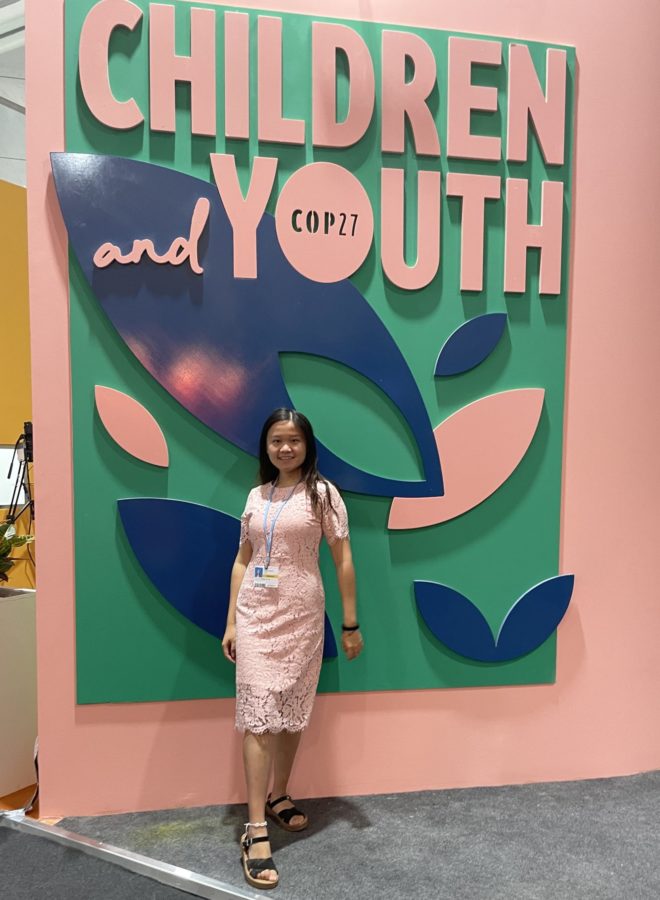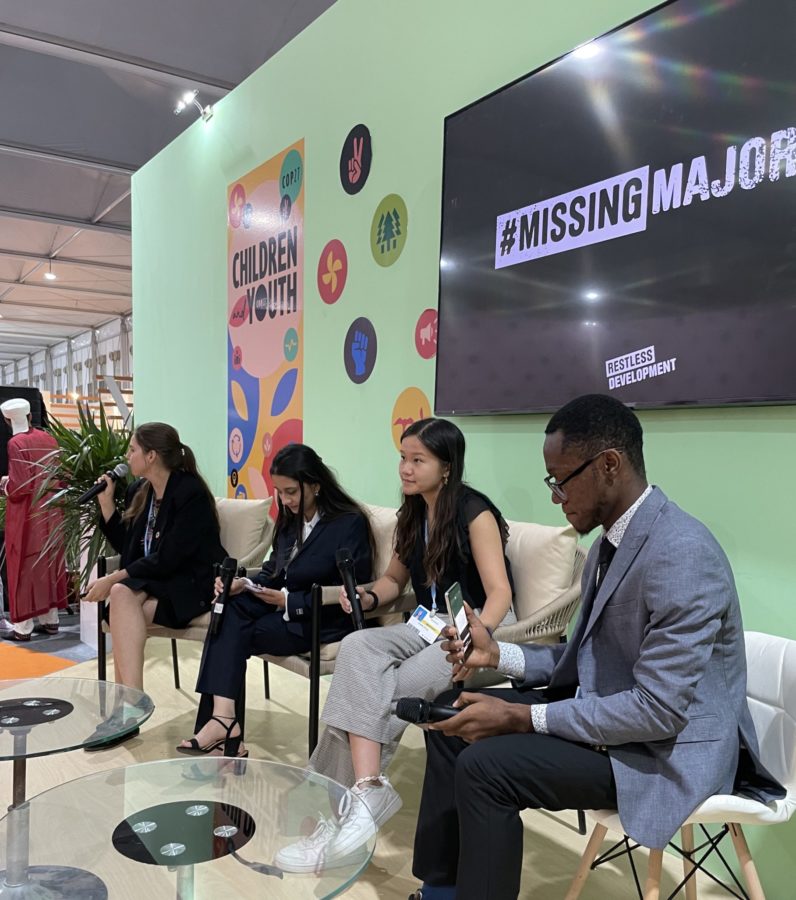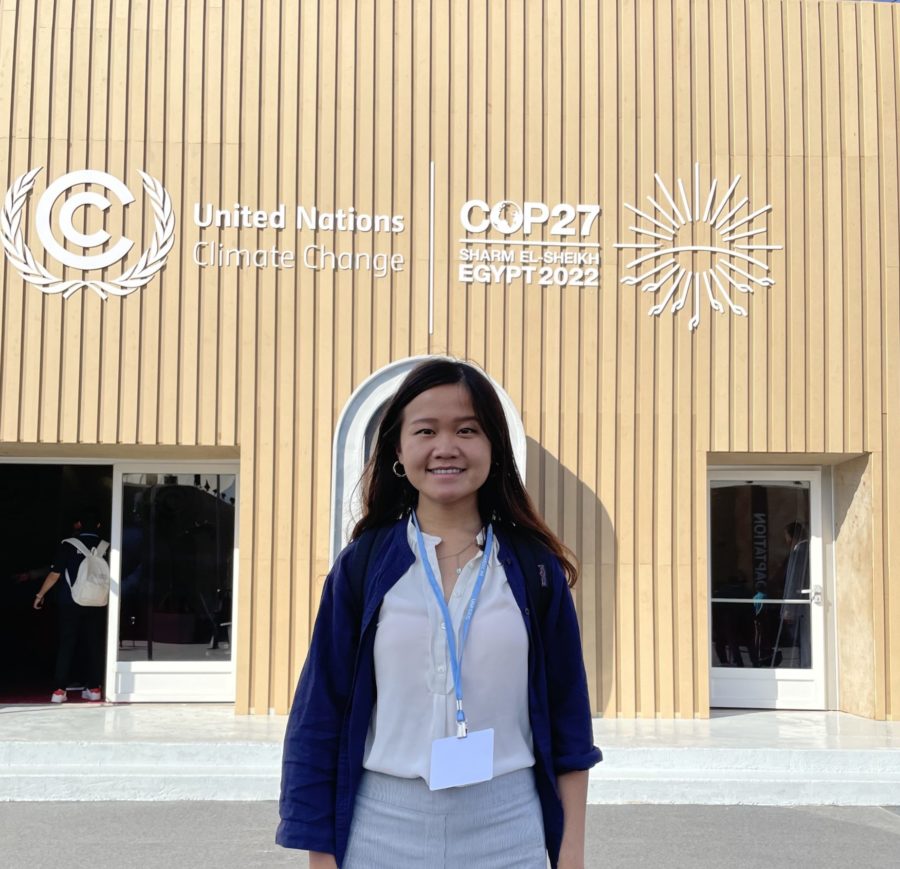All Roads Lead to Change: Reflections on attending COP27 as a youth leader
By TCI Board Member Angela Zhong
COP was one of the most unifying moments (at least in my year) for engaging a diverse group of stakeholders, even despite some of its flaws. I was fortunate enough to attend the first week of COP27 through the SustainUS delegation and meet youth, elders, activists, policymakers, business leaders, and more from all over the world. More than just listening to their perspective or work, I discussed, learned, and grew in my ways of thinking about what change looks like and what avenues are open to us to enact that progress. As someone who is currently not in school, I think that this experience provided me a rare opportunity for intellectual engagement and introspection of theory but also immediate action and directly applicable praxis.

At the Children & Youth Pavilion
Most, if not all, of the people I met were earnestly working toward the same goal of addressing climate change, in various forms. Some people were specialists on climate finance, drawing on public accounts to attract private investors into funds. Others were grassroots organizers, who diligently worked on the ground in their communities. These people would never otherwise choose to interact with each other. In their separate spaces, I wouldn’t be surprised to hear them criticizing the other. In my head, these groups represented the more macro-level divides in the climate advocacy space between the multilateral and the local, the institution and the people. At COP, in the frenzy of the blue zone and beyond, it was suddenly possible for these people to cross industry and ideology. I think that was the most valuable experience of the entire week.
Going into COP, I will admit that I personally only had experience in working with YOUNGO and affiliated groups, primarily focused on climate education, finance, and youth engagement at the UN. I was aware that there were more direct or local efforts but had never felt the need to participate in them, in part because I felt comfortable and supported in the community that I worked with and was excited to reconnect with them. I think that these feelings are normal and even beneficial – it is crucial that the network you work with is a welcoming and inclusive environment. However, the exposure to other stakeholders and politics means that I now feel like I have ways to access other ways of mobilizing action, whether that be direct or through party bilaterals. Even if I do not end up working on the same issues as others or feel that this is the best way for me to personally make change, having a better understanding of the complementary efforts around the world means that we can build better coalitions and informal networks to connect people to what draws them in. I hope to see this level of openness to engaging with other methods outside of COP.

I’ll end this by noting how many movements are fractured by ideology or by opportunity constraints. The youth climate advocacy movement is no different. From what I have experienced, it seems that the funders and media are focused on a few individual faces (sometimes considered “influencers”) rather than the work of communities. This is not to say that I believe certain routes of action are inherently more productive or effective than others. In fact, I think that there is a certain level of value to all of the efforts that people invest in the climate crisis. But I do believe that having a more diverse array of networks supported would be beneficial in uplifting all of the valuable work that is being done.

Angela Zhong is a Board Member at The Climate Initiative and is thankful for this opportunity to share her reflections. Learn more about SustainUS at: sustainus.org and her at: angelazhong.com. She welcomes any feedback or questions at ayzhong@college.harvard.edu.
